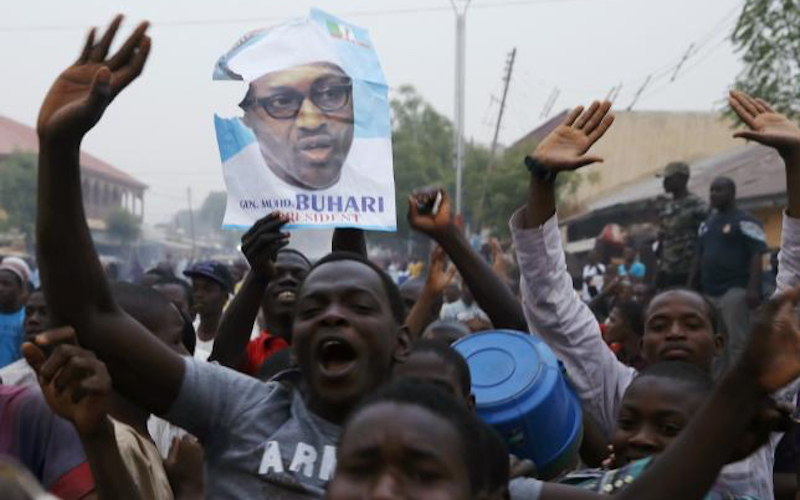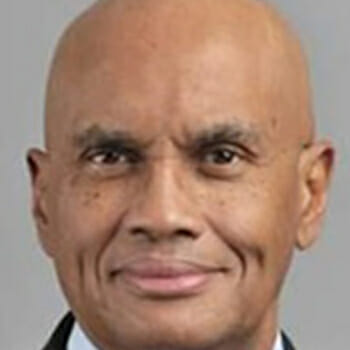
Buhari’s Victory in Nigerian Election has Global Significance
Muhammadu Buhari’s convincing defeat of incumbent Goodluck Jonathan in the Nigerian presidential election is an event of global significance. To his credit, President Jonathan promptly conceded defeat, thereby discouraging any attempt to impede the transfer of power.
The election was held even as the world’s attention was further drawn to the gruesome brutalities committed by the Boko Haram insurgency. Inexplicably, Africa’s largest armed force, which has been given enormous financial outlays, has not been able to subdue a ragtag militia.
The world desperately needs a victory against cultist jihadism. Nigeria can provide it. As commander-in-chief, Buhari can oversee a coordinated effort to squelch the insurgency.
His victory is also significant because it has been achieved via democratic elections. In no other large country, with an almost equal number of Muslims and Christians, is such a process conceivable. The subsiding of the Arab Spring deflated hopes for a new concordance between Islam and democracy.
A Nigerian constitutional democracy, led by a former military dictator and avowed supporter of Shari’a law, will be a powerful counterpoint to the autocratic upswing symbolized by Egypt’s president, Abdel Fattah el-Sissi.
New hope that corruption will be reduced
A third notable fact about Buhari’s victory is the hope it rekindles for drastically reducing corruption. You cannot build capable state institutions when the prime motivation of office-holders is to drain the public purse into their pockets, and those of their cronies and kinfolk.
Three decades ago I called this bane of Nigerian political life “prebendalism.” Goodluck Jonathan, with no claim to high office except his luck in finding himself in the chain of regionalized political patronage, was unable to get off this tiger. The more his administration sought to accomplish, the bigger the problem became, until the surfeit of financial scandals and depletion of government revenues eroded his presidency.
Buhari first came to power in December 1983 in a coup d’état as a military disciplinarian determined to punish those accused, and then summarily convicted, of corruption.
In the three decades since he was toppled from the presidency in 1985, he has demonstrated that his passion for public service is not fueled by greed. For example, as chairman of the Petroleum Trust Fund in the 1990s, he oversaw the use of its resources primarily for development projects. At 72 years of age, he has the opportunity to accomplish something that few of his predecessors, military or civilian, have even attempted: serving the nation and its citizens rather than members of the political-business-military class.
Politics in Nigeria often resembles a game of musical chairs. When the music stops, seats are snatched, and the looting commences. In the past, martial tunes would sometimes be heard, and the constitutional edifice would be constructed anew – all at enormous cost to the treasury.
This time around, after the ballot box became the music box, corruption can again be rigorously but lawfully tackled.
Plaudits to the Nigerian people
Among the champions of the 2015 national elections, the Nigerian people, collectively, must be saluted.
As Nigerian Nobel Laureate Wole Soyinka once stated: “The Nigerian people have always approached democracy and the elites have always turned them back.” Nigerians have often been enticed to the polls by the promise of holding elected officials accountable and even changing them. But politicians, with their well-heeled patrons, thugs-for- hire, and the complicity of electoral staff could usually warp the process.
To obtain more than an “election-like event,” to quote the words of the former US ambassador to their country, John Campbell, Nigerians needed an electoral commission that lived up to its name of being “independent” and “national.”
Thanks to Professor Attahiru Jega, an American-trained political scientist who served as Chairman of Nigeria’s Independent National Electoral Commission, Nigerians are finally endowed with such a commission.
Professor Jega withstood unimaginable pressures as the Jonathan political and security team realized that their man’s prospects were dimming. In the face of the acute tensions of catering to nearly 30 million voters, including displaced communities, Jega conducted himself with grace and high professionalism. The Nigerian nation owes him a great debt of gratitude.
Campaign money tossed around like confetti
The election campaigning itself, as Soyinka declared, was “an embarrassing exercise,” with money thrown about like confetti.
Despite the Boko Haram atrocities, the sharp decline of oil income, missing billions in government revenue and two-thirds of the population mired in poverty, Nigerians were deluged incessantly with campaign giveaways.
In the midst of it all, however, they saw that the gates of political freedom were opening. They came to believe that a born-again democrat, who thrice sought the presidency and now led an historic reconfiguration of political forces, was their best chance to shed the carcass of a crippled giant.
They also took Goodluck Jonathan at his word that, if he lost the election, he would be the first Nigerian president to yield power peacefully to the opposition.
No one should expect that the way forward will be smooth.
Nigeria remains a complex and contentious polity. Nevertheless, the Jonathan administration had become a bridge to nowhere. The manner of his going can now match in dignity how he skillfully wrested power five years ago.
Meanwhile, the victor, Muhammadu Buhari, can begin restoring the tattered image of Nigerian governance at home and abroad.
This article was originally published on The Conversation. Read the original article.

